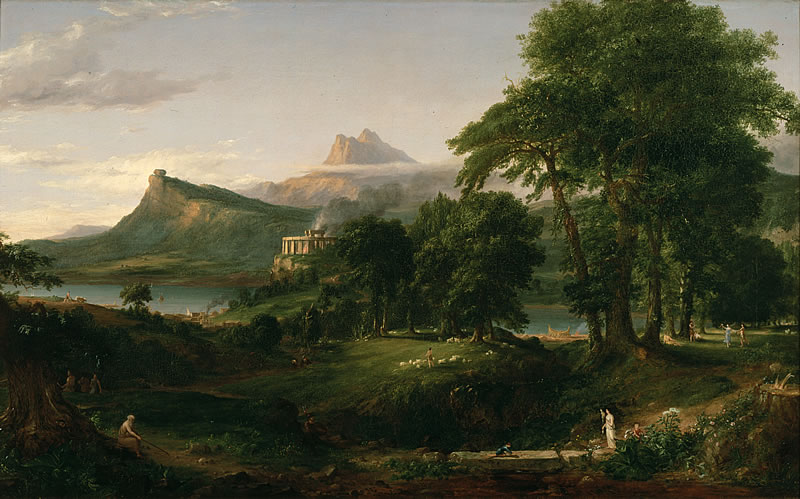In nearly every class I teach–whether it’s about western civilization, the American founding, or Christian Humanism–I talk about the natural (supposedly) cycles of life, the seasons, and republics. If you’re interested, here are my favorite quotes and art supporting the view.
In Miletus, ca. 500BC
Can we escape the cycles of the seasons, of man, of life?
Polybius (200-117BC)
No clearer proof of the truth of what I say could be obtained than by a careful observation of the natural origin, genesis, and decadence of these several forms of government. For it is only by seeing distinctly how each of them is produced that a distinct view can also be obtained of its growth, zenith, and decadence, and the time, circumstance, and place in which each of these may be expected to recur.
Livy (59BC-17AD)
To the following considerations, I wish every one seriously and earnestly to attend; by what kind of men, and by what sort of conduct, in peace and war, the empire has been both acquired and extended: then, as discipline gradually declined, let him follow in his thoughts the structure of ancient morals, at first, as it were, leaning aside, then sinking farther and farther, then beginning to fall precipitate, until he arrives at the present times, when our vices have attained to such a height of enormity, that we can no longer endure either the burden of them, or the sharpness of the necessary remedies.
Mercy Otis Warren, 1805
She has in great measure lost her simplicity of manners, and those ideas of mediocrity which are generally the parent of content; the Americans are already in too many instances hankering after the sudden accumulation of wealth, and the proud distinctions of fortune and title. They have too far lost that general sense of moral obligation, formerly felt by all classes in America.
This may in some measure have arisen from their late connexions with other nations; and this circumstance may account for the readiness of many, to engraft foreign follies and crimes with their own weak propensities to imitation, and to adopt their errors and fierce ambition, instead of making themselves a national character, marked with moderation, justice, benignity, and all the mild virtues of humanity.
If this should ever become the deplorable situation of the United States, let some unborn historian in a far distant day, detail the lapse, and hold up the contrast between a simple, virtuous, and free people, and a degenerate, servile race of beings, corrupted by wealth, effeminated by luxury, impoverished by licentiousness, and become the automatons of intoxicated ambition.

Thomas Cole, Course of Empire I

Thomas Cole, Course of Empire II

Thomas Cole, Course of Empire III

Thomas Cole, Course of Empire IV

Thomas Cole, Course of Empire V
Pingback: Daybook, 17 November 2016 | Ex Libris Humanitas